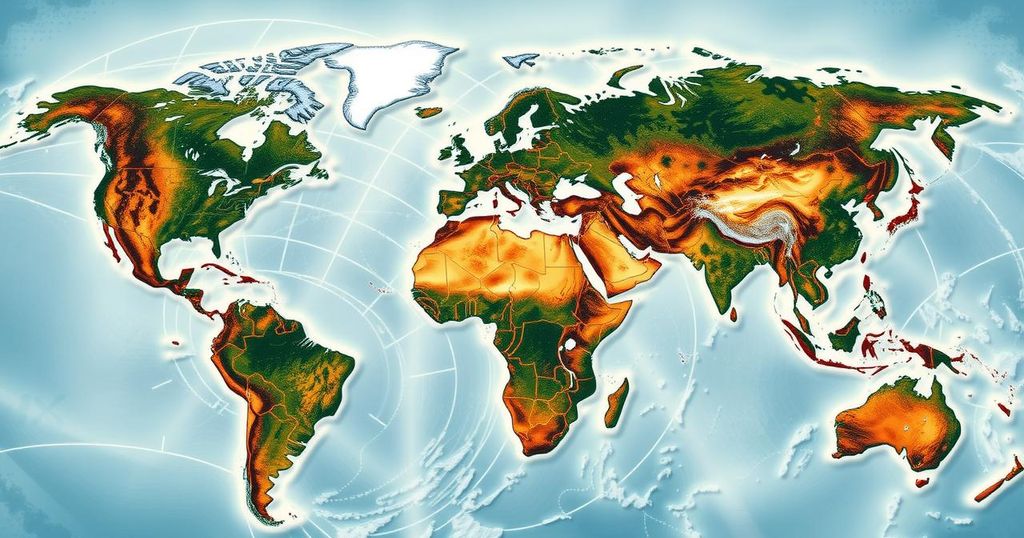The year 2024 has experienced extreme weather linked to climate change, with unprecedented heat and storms impacting billions globally. Researchers indicate a significant increase in dangerous heat days and notable disasters across regions, highlighting the urgent need for global preparedness and adaptation strategies in the face of ongoing climate challenges.
The year 2024 has been marked by extreme weather conditions exacerbated by climate change, affecting billions globally. Record-breaking heat has resulted in intensified weather phenomena, including hurricanes and severe droughts. Research indicates that inhabitants across the planet experienced an alarming 41 additional days of dangerous heat compared to a scenario without climate change. This analysis by the World Weather Attribution group highlights the devastating impact of fossil fuel-induced global warming, compelling those in vulnerable demographics, especially the elderly and young, to face the brunt of these extremes. Significant climate events, such as dangerous droughts in the Amazon region and unprecedented typhoon seasons in the Philippines, have dominated global headlines, affecting food security and leading to substantial fatalities.
In the Amazon, a regional heatwave coupled with the El Niño phenomenon drastically reduced rainfall, resulting in critically low water levels in the Amazon river and impacting local agriculture and ecosystems. Moreover, families, particularly children, faced dire shortages of drinking water due to school closures in Brazil and Colombia. The effects of climate change do not recognize borders; for instance, the Philippines experienced a record six typhoons in just 30 days, showcasing the country’s vulnerability to extreme weather.
Meanwhile, even wealthy nations were not immune to nature’s fury, as demonstrated by the devastation wrought by hurricanes in the United States, leading to extensive casualties and economic damage. Flooding incidents in African nations such as Nigeria and Sudan highlighted the role of poor infrastructure in exacerbating the effects of extreme weather. Research ascertains that heavy rainfall and flooding will increasingly become common, necessitating urgent preparedness efforts to mitigate losses and bolster disaster resilience.
It is evident that climate change poses severe risks that necessitate immediate and coordinated efforts globally to safeguard vulnerable populations and preserve ecosystems.
This year has illustrated how climate change continues to challenge humanity, necessitating a collective response to adapt to and mitigate these growing threats.
The background information indicates that climate change has significantly altered global weather patterns, leading to increasingly frequent and severe weather events. As the planet continues to warm, the consequences of this change are becoming more pronounced, with particularly vulnerable populations suffering the most. The research presented by the World Weather Attribution group aims to assess the specific impacts of climate change on these extreme weather occurrences, facilitating a clearer understanding of the nexus between human activity and the environment, and its implications for future disasters. Understanding the vulnerabilities of different populations, including those affected by conflict or infrastructural issues, is crucial in comprehending the broader implications of climate change globally.
In conclusion, the year 2024 has starkly underscored the severe ramifications of climate change, with record-breaking temperatures leading to an array of extreme weather events affecting billions. The ongoing challenges highlight the urgent need for comprehensive climate actions to address vulnerabilities, enhance preparedness, and build resilience within communities worldwide. It is evident that without significant intervention and adaptation strategies, the impacts of climate change will continue to pose existential threats to humanity and the natural world.
Original Source: www.bbc.com






